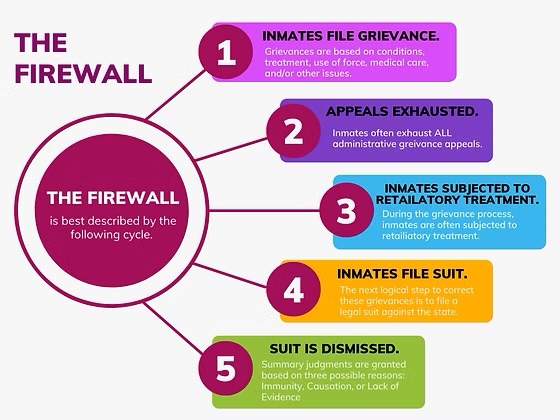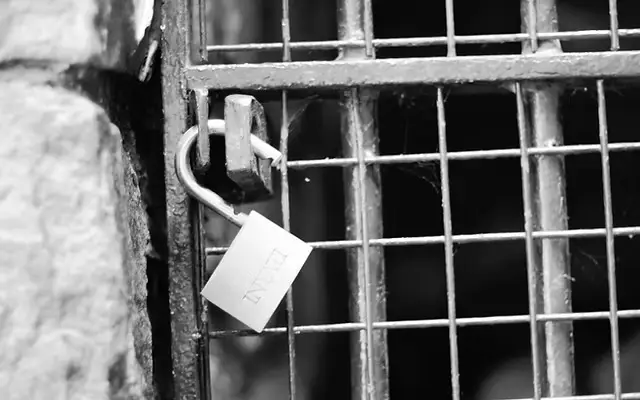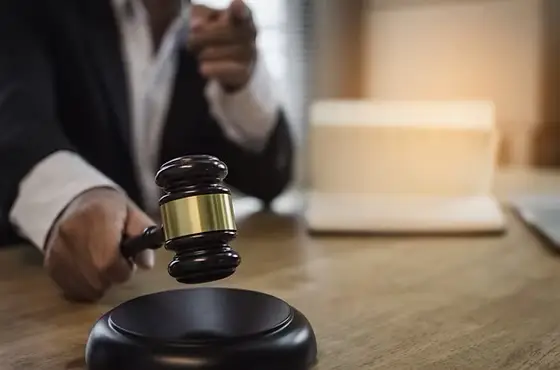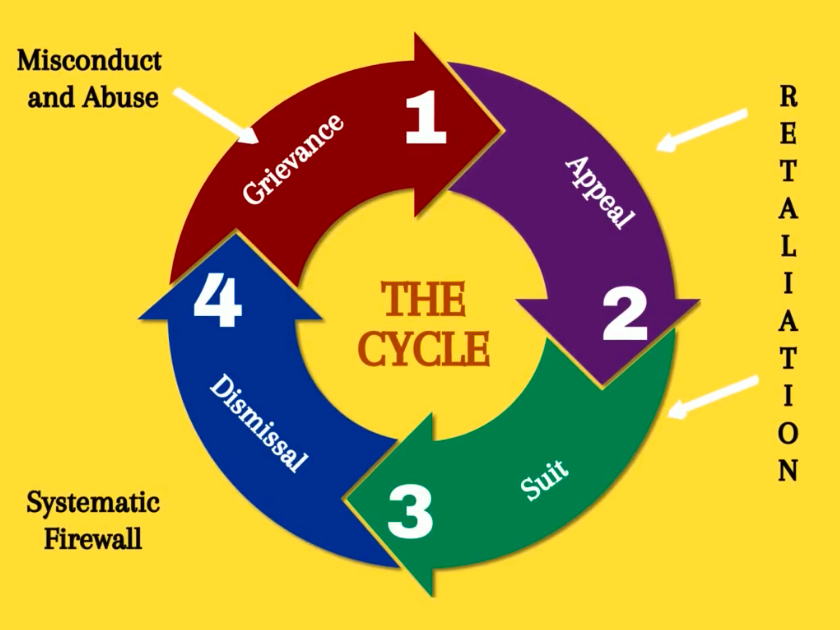What is the Firewall?

The Firewall refers to the legal protection afforded the State of Georgia, the Georgia Department of Corrections, the Warden, and other state actors that begins and ends with the 11th Amendment of the United States Constitution. This firewall persists and repeatedly brings about dismissals and adverse judgements for inmates because of their inability to pierce the barriers due to their incarceration.
File 13

Picture yourself trapped in an abusive situation where the power imbalance between you and your abuser is so extreme, it feels like there is no light at the end of the tunnel. Inmates suffering from mistreatment have an insurmountable obstacle before them, especially when the Firewall protects the state rather than its charges. File 13 refers to the endless games and excuses utilized by the Department of Corrections to suppress, ignore, or extinguish the grievances filed against them.
We have all experienced the runaround.
It’s getting transferred from one customer service representative to another to another to another, only to have your phone call dropped. It’s paying for your order with one service to find out the payment didn’t arrive or “got lost” in the process. It’s sharing your experience with one person who claims to understand, only to completely deny ever being on your side when asked to show their support. File 13 is where inmate grievances go to die. It’s intended to appear as if the issue is being addressed, but in reality, the cries for help are falling on deaf ears.
This is why we demand TRANSPARENCY and ACCOUNTABILITY from the state.
DISMISSED
While the State offers an administrative process to address inmate grievances, inmates face a large uphill climb to seek redress. The disadvantage comes from an inability to meet the evidentiary standards required to be successful. In suit after suit, inmates are defeated because they can’t “prove” the required nexus between the cause of action and the individual state officer (governor, warden, officer/agent). For instance, inmates filing suit on their own or “pro se” cannot request video tapes, schedule depositions and interviews, or collect statements throughout the Department of Corrections or his institution.
Yet, this evidence is essential to establishing one’s case. How can inmates overcome their burden of proof to prove the injustices they are suffering at the hands of the department? It’s virtually impossible which is why internally filed grievances are often disregarded or ignored. Appeals are lost and attempts exhausted. Suits that finally reach the higher courts are quickly dismissed because the inmate filing it couldn’t meet the minimal standards needed to substantiate their claims.
In essence, your voice is muted because the ones who control the process have hindered your ability to be heard. You and your grievances have simply been stamped “Dismissed.”

THE CYCLE
The never-ending cycle is a direct result of the firewall creating its own defense on behalf of the state. Inmates are constantly up against a well-rehearsed and legally sanctioned firewall that perpetuates a cycle of misconduct, retaliation, and dismissal.
To combat this cycle and break through the routine, inmates need awareness, transparency, and a supportive strategy designed to deter and prevent it in order to regain their humanity.

The misconduct, mistreatment and lack of humane conditions within the Georgia Department of Corrections is part of a systematic cycle. While a punishment should fit the crime, the same should be true when the crimes are committed by those in charge. Inmates are subjected to a paper-pushing grievance process that does not result in real change in circumstances or conditions.
The cycle must be broken and the truth revealed to the public.
